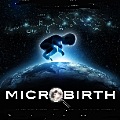- By -Staff
- Entertainment
 Print
Print  'Microbirth' looks at childbirth in a whole new way; through the lens of a microscope. Featuring Ivy League scientists, among them Cornell University Immunotoxicology Professor, Rodney Dietert, the film investigates the latest research that is starting to indicate modern birth practices could be interfering with critical biological processes. This could be making our children more susceptible to disease later in life.
'Microbirth' looks at childbirth in a whole new way; through the lens of a microscope. Featuring Ivy League scientists, among them Cornell University Immunotoxicology Professor, Rodney Dietert, the film investigates the latest research that is starting to indicate modern birth practices could be interfering with critical biological processes. This could be making our children more susceptible to disease later in life.Recent population studies have shown babies born by Caesarean Section have approximately:
- 20% increased risk of developing asthma
- 20% increased risk of developing type 1 diabetes
- 20% increased risk of obesity
- slightly smaller increases in gastro-intestinal conditions like Crohn's disease or celiac disease.
In the film, scientists hypothesise that Caesarean Section could be interfering with 'the seeding of the baby's microbiome'. This is an important microbiological process where bacteria is transferred from mother to baby in the birth canal. As a consequence, the baby's immune system may not develop to its full potential. Another hypothesis is that the stresses and hormones associated with natural birth could switch on or off certain genes related to the immune system and metabolism. If a baby is born by C-Section, this might affect these epigenetic processes.
Dr Rodney R Dietert, Professor of Immunotoxicology at Cornell University, says, "Over the past 20-30 years, we've seen dramatic increases in childhood asthma, type 1 diabetes, celiac disease, childhood obesity. We've also seen increases in Caesarean delivery. Does Caesarean cause these conditions? No. What Caesarean does is not allow the baby to be seeded with the microbes. The immune system doesn't mature. And the metabolism changes. It's the immune dysfunction and the changes in metabolism that we now know contribute to those diseases and conditions." Dietert will participate in a panel discussion following the movie screening at Cinemapolis.
Dr Matthew Hyde, Research Associate of Neonatal Medicine, Imperial College London says, "We are increasingly seeing a world out there with what is really a public health time-bomb waiting to go off. And the research we are doing suggests it is only going to get worse, generation on generation. So tomorrow's generation really is on the edge of the precipice unless we can begin to do something about it."
The film's co-Director Toni Harman says, "The very latest scientific research is starting to indicate that the microscopic processes happening during childbirth could be critical for the life-long health of the baby. We are hoping "Microbirth" raises awareness of the importance of "seeding the microbiome" for all babies, whether born naturally or by C-Section, to give all children the best chance of a healthy life. This could be an exciting opportunity to improve health across populations. And it all starts at birth".
v10i39
